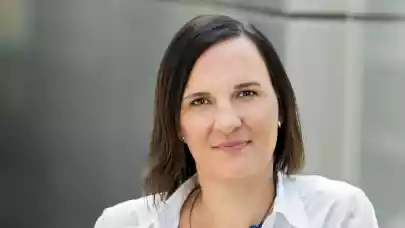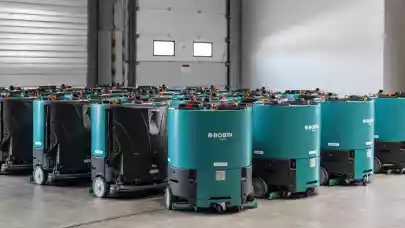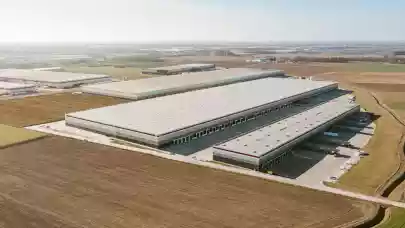
As of May 2022, Alena Liškay Králíková is the new ESG Manager of Czech development company Crestyl. According to her, while thinking about ESG in real estate businesses, it is important that buildings are not only serving the company´s ESG goals but also their residents, tenants and the entire neighbourhood too.
You have worked as a Sustainability and Diversity Manager and a CSR Manager. What have you taken from these previous positions to your current role as ESG Manager at Crestyl?
All my past positions and the experience I have gained through them have added specific pieces to the complex puzzle behind the three letters, be it CSR or ESG. In my understanding, they overlap as both relate in their definitions to all aspects of sustainability – environmental, social and governance. I have had the great opportunity to work with a variety of companies, as well as to mentor start-ups and social businesses, which provided me with the insight into issues they need to look at if they truly intend to be as sustainable as possible – not only in relation to the key perspectives of environmental and social impacts but also profit-wise. We should not forget that profit and business sustainability are the prerequisites for a company of any size wishing to do as much as possible in relation to ESG. They first have to be responsible towards their shareholders and – along with that – strategize on ESG aspects as key components of the business success.
Many companies may declare that ESG is part of their DNA but many tend to focus only on a brief selection of aspects overlooking those that might be ‘minor’ in their view. Today, when the E context is on the top, the S and G principles might be lagging behind, though not intentionally. That is why Crestyl approaches ESG globally looking at all of its components in their colourful variety. And my role is seeing to this difficult task while following trends affecting our business and moving it forward to sustainability, expectations of stakeholders and atmosphere in the society, and – last, but definitely not least – current and upcoming legislation.

Alena Líškay Králíková
ESG Manager
Crestyl
In which aspect does ESG management in financial institutions where you worked (Kooperativa insurance company, CSOB bank, etc.) differ from the real estate business?
When in financial institutions, I have typically been part of different working or consultation groups developing new products or sustainability-related measures, processes, metrics etc. Thanks to Business for Society, a platform of responsible companies dedicated to sustainability, I have cooperated on very different projects and initiatives across businesses, including consultants, gained valuable knowledge and understood ESG challenges they may face. Both areas of experience are now very useful as I can be one of the ESG drivers at Crestyl. As Crestyl is also smaller in size, I enjoy being part of projects from their very idea, all next steps, that may also include deadlocks, and coming to life.
The major difference is that Crestyl provides a true ‘hands-on’ experience and the possibility to be part of the implementation of various policies and methodologies in reality. These already include – and will even more in the future – materials to be provided to banks and other financial entities for being eligible for green or sustainable financial instruments. They will, logically, accentuate the E segment of ESG as Crestyl – based on the nature of real estate business – primarily impacts the environment. And we are persuaded that we do so with true respect to it.
What’s Crestyl’s overall ESG strategy? How are you approaching the S and the G?
It is our intention to address all of them equally. E is obviously the key one that comes to one’s mind in our business and I am sure I can say that we are very strong there though we have not communicated it so far in a properly structured way. We are committed to climate change and to environment-minded decisions, yet, we have always preferred acting to talking. The proof is that our commercial projects aim high when it comes to LEED certifications, and we are similarly ambitious with our residential or mixed-use projects. Did you know that we are to plant 2000 trees and bushes in Hagibor? And – similarly to our other projects – the location will not only serve its residents and tenants but also the neighbourhood since we are dedicated to making our projects parts of others’ lives.
When it comes to S, we approach it from two directions – the internal one having in mind our colleagues, life in the company and its corporate culture, and the external one that considers the community. Thanks to the nature of our business, we co-create communities around all projects we develop – formed of their residents, tenants, municipalities or relevant NGOs – while respecting them as important stakeholders. And though G comes last, it is the basis of our long-term success. Transparency, open communication, conceptual risk management and good governance are the core of our business.
If I may develop a little more on the S, we have done a lot over the last few months. In 2021, we ran an employee survey where we heard loud and clear what we did not do well. We accepted the challenge and started culture renovation. We identified vision and values and implemented them in our day-to-day life at the company. We measure employee satisfaction and formed a culture committee that undertakes steps to make everyone’s life at work easier. We also revised the organizational structure, which is now matrix-based, contrary to hierarchy, and focused on empowerment and individual decision-making and responsibility. We are determined to support our people to grow.
Crestyl is currently active in three different asset classes - residential, offices and retail. How do you manage to comply with ESG in such different areas?
We cooperate with progressive architects and have always had in mind energy efficiency and respect for community and environment – along with quality and design. Many of our projects have thus been compliant with ESG in many aspects since years back. We are therefore persuaded that the task of being fully compliant will not be as difficult as if we were starting with a responsible and considerate approach only now. Currently, we are in the process of defining our ESG strategy until 2030 which shall represent the framework for our ESG compliance. It is our aim to be ahead of all obligations awaiting us and start now taking steps that will be requested upon us as of 2024 and the following years. That is why we are diving deep into various real estate analyses, EU taxonomy and a number of different abbreviations that have surfaced in relation to ESG regulations and recommendations, or materials published by banks and other financial entities.
Has the current geopolitical situation also affected your work and Crestyl's ESG strategy? To what extent and in what ways?
Sustainability has always been at the core of all our projects. And we shall build on that when formulating our long-term strategy. It will gather its shape and concrete contours during the summer months and I believe that we will be able to design it in a way that mirrors the current situation as well as the outlook and responds to it properly. We are considering different routes having two equally important contexts – finance and ESG – on top of our minds. At the same time, we focus on defining areas that will be subject to non-financial sustainability reporting, in other words, we are seeking indicators to be monitored, compared and evaluated on a regular basis and then transparently communicated to all stakeholders.
According to UniCreditBank's ESG survey from May, the overwhelming majority (68%) of responding companies in the Czech Republic considers the application of ESG principles to be a competitive advantage and believe that companies that do not pay attention to it will have difficulties raising financing in the near future. Do you agree with this assessment?
I do. Our consultations with banks and investors prove that. I believe I can say that they declare that companies that will not regard the ESG principles will have difficulties in obtaining good terms in financing their future projects. Already in 2021, we got a clear message from German banks that they will not finance projects non-compliant with ESG shortly. I am persuaded that not only the financial stakeholders will play a decisive role, but also individuals will be more and more insistent on turning ESG into a ‘lived reality. We already do have such signals from some of our tenants. The positive side of the whole ESG story is that when we are ESG compliant, we will have access to a much bigger pool of investment money from those investors who would otherwise not even look in the direction of our region.



